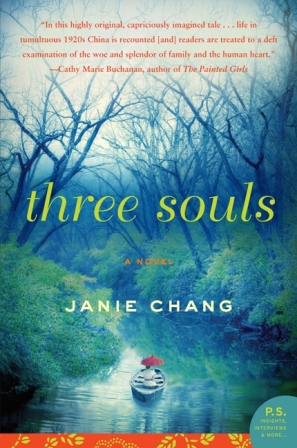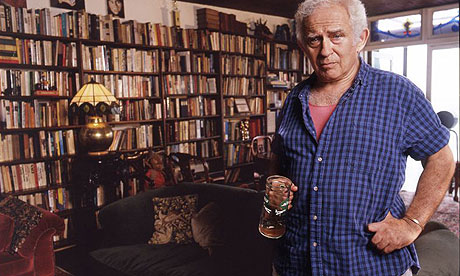About: Flyboys: A True Story of Courage by James Bradley is a non-fiction book about pilots in World War II. Mr. Bradley wrote several World War II books, the most famous is Flags of Our Fathers. 592 pages Publisher: Little, Brown and Company Language: English ISBN-10: 031610728X My rating for Flyboys – 3 Buy this book in paper or electronic format* More Books by James Bradley More Recommended World War II books on Man of la BookStore Thoughts: Flyboys: A True Story of Courage by James Bradley is an interesting book about a group of young men who had no idea what they were getting themselves into. They were brave men who watched their friends die and still flew day in and day out. I especially liked the beginning of the book where Mr. Bradley talks about the history of Japan, explaining how it came to invade other countries and their feudalistic culture. The latter came into importance in the Japanese Army which made it impossible for soldiers to refuse even the most inhumane orders. Mr. Bradley chose a strange way to tell this story. The author jumps around a lot between history, personal stories and timelines and it’s difficult, at some points, to…
Search results for: Japan
About: All You Need Is Kill by Hiroshi Sakurazaka is a Japanese science fiction story. The novel was made into a movie called Edge of Tomorrow, rebranded to Live, Die, Repeat when released in DVD format, but it looks like they changed it back. 230 pages Publisher: Haikasoru; Original edition Language: English ISBN-10: 1421527618 My rating for All You Need is Kill— 4 Buy this book in paper or electronic format* More Books by Hiroshi Sakurazaka Thoughts: I wanted to read All You Need Is Kill by Hiroshi Sakurazaka because I really enjoyed Edge of Tomorrow and thought it would be fun to read the book. I was not disappointed, while the movie is, in general terms, much like the novel they are still different enough to enjoy both. The story came out of the author’s idea of living in a video game, when you fail you try again but this time with the knowledge of what will happen. If you fail again, you get to try again with more knowledge, this cycle repeats until you finally defeat the game. Once the protagonist gets over the shock and realization that he keeps dying, he realizes that what he does…
When Shiga declared his intention to marry one of the family’s maids, she was quickly “removed” from the household.
On the eve of December 6th, Lieutenants Kenneth M. Taylor and George S. Welch, dressed in tuxedos, attended a formal dance at the Officer’s Club at Hickam Field. They left around 11 p.m. and drove back to the Bachelor’s Officer Quarters at Wheeler Field. The usual Saturday night poker game at the BOQ was in full swing so they sat in to play. Welch turned in early. Close to 4 a.m. a weary Taylor left the game to hit the sack thinking Sunday would just be another easy day.
3. Her father was a law-rank samurai (a rank which he bought and lost), a municipal worker and lost the family’s money on a failed business
Abe Kōbō (27 March 7, 1924 – 22 January 22, 1993) was a Japanese writer who was also a photographer and playwright. Books by Abe Kōbō His name is pronounced AH-bay KOH-boh Following his father’s footsteps, Abe went to medical school. As the story goes, he was only allowed to graduate if he promised that he’ll never practice medicine. Some of the authors that were influenced Abe were Dostoyevesky, Kafka, Nietzche and Poe. Abe’s first published piece was the book Poems of an Unknown Poet (Mumei-shishū – 1947) which was self published. In 1948 Abe published The Road Sign at the End of the Street (Owarishi michi no shirube ni) which maked his transition into a novelist. Abe won international acclaim in 1962 for his novel The Woman in the Dunes. The author also started an acting studio in Tokyo, where he trained performers and directed as well. Abe was awarded the Akutagawa Prize for The Crime of S. Karuma (1951), the Yomiuri Prize for The Woman in the Dunes (1962), and the Tanizaki Prize for Friends(a play – 1967). Abe was nominated multiple times for the Pulitzer Prize – but never won one. Abe collobaroted with famed Japanese director Hiroshi…
In China, 1935, Leiyin watches her own funeral and wanders why she has not been permitted to the afterlife. Leiyin discovers that she is not alone; three souls are there to guide her along the way until she make amends. But first she has to find out what she has to make amends for.
Norman Mailer (31 January, 1923 – 10 November, 2004) was an American author, journalist, playwright, actor, film maker and political activist.
Robinson Jeffers (January 10, 1887 – January 20, 1962) was a poet from California who is considered today an icon of the environmental movement. Jeffers’ was born in Allegheny, PA which is now a part of Pittsburgh. He began to learn Greek at the age of 5. His father, an Old Testament Literature and Biblical History professor at Western Theology Seminary, sent him to study in European schools including at Zurich, Leipzig and Geneva. Most of Jeffers’ poems were written in epic or narrative form. While going to graduate school at the University of Southern California he met his future wife, Una Call Kuster, in a class on Faust. Jeffers’ was admitted to medical school. After his marriage, Jeffers’ moved to Carmel, CA. Jeffers’ didn’t like what has become of the world and how self centered human beings were. Jeffers coined the word inhumanism, the belief that mankind is too self-centered and too indifferent to the “astonishing beauty of things.” During the 1930s and 40s Jeffers’ patriotism was called into question due to references to current events and leading figures. Jeffers’ poems have been translated to many languages but they are most popular in the Czech Republic and Japan. Zohar…
The publisher is giving away one copy to three (3) winners of The Gods of Heavenly Punishment–to enter fill out the Rafflecoptter form at the end of the post. On Writing Unlikable Places A few months back, like many writers—and women writers in particular, I suspect–I followed the literary debate over “likable” characters with some interest. For those who might have missed, it all started with an interview Publishers Weekly sat down to with novelist Claire Messud, and their guileless assertion that Nora, the unambiguously furious main character of Messud’s novel The Woman Upstairs, wasn’t someone they’d “want to be friends with.” As Jennifer Weiner later put it in Slate in her thought-provoking response to the exchange, Messud all but “flipped the table”: For heaven’s sake, what kind of question is that? Would you want to be friends with Humbert Humbert? Would you want to be friends with Mickey Sabbath? Saleem Sinai? Hamlet? Krapp? Oedipus? Oscar Wao? Antigone? Raskolnikov? Any of the characters in The Corrections? Any of the characters in Infinite Jest? Any of the characters in anything Pynchon has ever written? Or Martin Amis? Or Orhan Pamuk? Or Alice Munro, for that matter? If you’re reading to find friends,…


